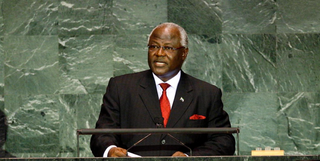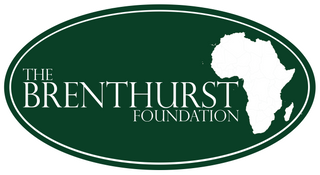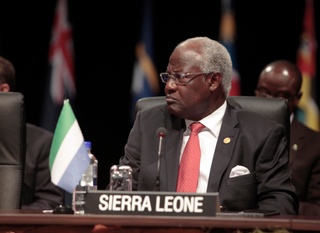News
Fears of Violence in Sierra Leone as Former President Koroma Faces Treason Charge
The need for unity in Sierra Leone in the wake of a brutal 11-year civil war, which ended in 2002 and left an estimated 50,000 people dead and the economy in tatters, is always top of mind.

Former Sierra Leone president Ernest Bai Koroma has used his retirement years to speak about the dangers to democracy in Africa of a rising tide of coups and he has travelled the continent to raise awareness of the issues and discuss solutions with a range of governments, institutions and diplomats.
And yet, in a twist of fate, the man who has become a sought-after elder statesman in Africa, on Wednesday last week found himself in a courtroom in his own country being charged with treason for allegedly taking part in a suspected coup d’etat late last year.
This was despite an offer made by leaders of the regional bloc Ecowas (the Economic Community of West African States), the day before to “temporarily relocate” Koroma to Nigeria in return for dropping the charges against him and ensuring all his perks as a former president remain in place.
The deal was brokered by Nigerian President Bola Tinubu as the chair of Ecowas, Senegal’s President Macky Sall and Ghana’s leader, Nana Akufo-Addo, who were copied in the letter proposing the deal that was sent to President Julius Maada Bio.
Sall and Akufo-Addo had earlier discussed the security situation in the country, and allegations of Koroma’s involvement, with Bio during a visit to Freetown in December.
However, the deal has been rejected by Sierra Leone, and the trial is now set down for 17 January.
Allegations of a failed coup arose from a series of violent attacks in the capital, Freetown, on 26 November, which included raids on an armoury in the city, and on two barracks, two prisons and two police stations.
According to the Ministry of Information, the fighting left 21 people dead, 18 of them members of the security services, and about 2,000 prisoners were released.
Koroma was not spared. A military guard provided to him by the state was shot dead inside the former president’s residence in Freetown and another guard, also provided by the state, was abducted and taken to an unknown location until he surfaced a few days later in the hands of the police.
Several other Koroma security guards at his Freetown and Makeni homes were detained without charge or access to lawyers and the residences were ransacked by state security, according to the former president’s team.
Some of the former president’s close friends were also briefly detained.
By mid-December, Koroma had been placed under effective house arrest in his Freetown home.
Although an estimated 80 people were arrested in connection with these events, most of them soldiers, the government seems to have set its sights on Koroma. It said some of Koroma’s former guards are suspected of having taken part in the unrest and it has assumed he had prior knowledge of this, even though the guards are provided by the state.
Koroma was repeatedly called for questioning by the authorities and spent, according to his lawyer, 40 hours being interrogated by the Criminal Investigation Department and the Anti-Corruption Commission.
These events culminated in this week’s appearance in the dock of the man who led the country from 2007 to 2018.
He was charged with treason, “misprision” (deliberate concealment of knowledge of a felony), and two counts of harbouring. Twelve others, including a member of Koroma’s security, were also charged with treason.
Koroma has denied any knowledge of the coup and publicly criticised the events of November and the accompanying violence.
Any suggestion of a coup in a region where such anti-democratic actions have been mounting would be of concern to a government. However, critics say the current events are part of an ongoing vendetta against him by President Bio.
It is a matter of record that the government of Bio, a former soldier who led a military coup in the country in the mid-1990s, has harassed Koroma since it took power in 2018.
Many say he is resentful of Koroma’s continuing popularity after leaving office. People clamour for the former president’s attention at public forums and he is regularly visited by leaders from the region, ambassadors and other prominent people.
This resentment appears to have been further fuelled by Koroma’s success as an elder statesman, whose services have been sought by African governments and institutions outside Sierra Leone in recent years.
He joined various platforms, such as the West African Elders Forum, to influence discussions on how to manage threats to democracy on the continent and has led election monitoring missions.
They include last year’s poll in Kenya, where he headed a joint mission of the African Union (AU) and Common Market for Southern and Eastern Africa (Comesa).

For Zambia’s controversial 2021 elections, Koroma headed the 34-strong AU election observer mission and played a leading role in averting disaster when the incumbent, Edgar Lungu, initially refused to stand down despite a decisive loss at the polls, citing election irregularities.
Deep divisions
Some analysts also believe Bio suspected Koroma wanted to make a political comeback with his party, the opposition APC. But he has retreated from mainstream politics since handing over to Bio in 2018. In 2022, he resigned as chairperson and leader of his party, although he remains a member.
But the issues go beyond Koroma and reflect deep divisions between the two main parties — the APC and Bio’s SLPP — exacerbated by strident claims by the APC that the June 2023 elections, which put Bio back in power, were rigged and characterised by a lack of transparency.
The APC paralysed governance in the country for several months by boycotting parliament and local government after the elections. This ended in October after an agreement was reached under the mediation of the Commonwealth, the African Union and Ecowas.
One of the terms of this agreement was that the government end its persecution of the APC through detentions and court cases.
But tensions remain high and are likely to be exacerbated by the upcoming Koroma trial. Fears of violence appear to be the main reason behind the Ecowas offer to relocate him.
His lawyer, Joseph Kamara, has been outspoken on the matter. He says bringing charges against a president who was elected in free and fair elections to serve his country for two terms is setting a dangerous precedent.
Although Koroma needs to answer the charges against him to clear his name and avoid tainting his positive legacy, facing them in an environment of hostility from a government that is widely accused of waging a vendetta could ensure a conviction regardless of the details of the case.
The need for unity in Sierra Leone in the wake of a brutal 11-year civil war, which ended in 2002 and left an estimated 50,000 people dead and the economy in tatters, is always top of mind. The fear of any upsurge in violence is real.
It is early days in an unfolding drama, but the issue needs careful handling, given the potential for worsening existing political and ethnic divisions.
This article originally appeared on the Daily Maverick
Photo: United Nations Flickr


